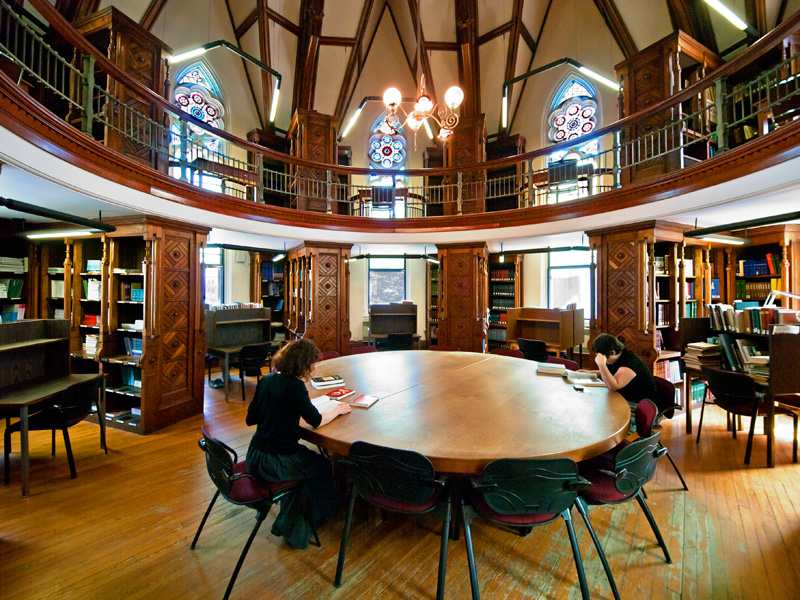As one of the most beautiful spaces on campus, it’s a shame that students often overlook the Islamic Studies Library when considering study location. Situated in Morrice Hall, the library holds approximately 125,000 books in 12 different languages on anything relating to the Islamic world, including religion, philosophy, and theology. In addition, 10,000 titles from the collection form the reference section and offer a wide range of language learning materials.
History
In 2012, the Islamic Studies Library celebrated its 60th anniversary. Professor Wilfred Cantwell Smith, a professor of comparative religions, founded the library and McGill’s Islamic Studies Institute in 1952. Legend says that the original library was made up of his personal collection of books on Islam in Indonesia and South Asia.
“I think [his focus] is why the collection of this library aims to cover the Muslim world as a whole, not only the Arab world,” head librarian Anaïs Salamon said. “It is much wider than that [.…] It is a very ambitious mandate.”
The library and the institute moved into Morrice Hall in 1983. The gothic-style building was originally built in the late 19th century to house the Presbyterian College of Montreal. It was donated to McGill in the 1960s and has been home to the institute ever since.
Atmosphere
Beauty is not a word that is often associated with a library at McGill, but the Islamic Studies Library is certainly enchanting. The place radiates peace and calm as soon as you step in the door. The dark wood of the staircase and the wood paneling of the Octagon Room—the buildings main quiet study area—help you de-stress even as you study. During the day, the room fills with natural light from the large windows with stained glass insets. Browsing through the bookshelves, you will find unique volumes filled with calligraphy, making the books just as elegant as the space.
According to Salamon, the Islamic Studies Library is a serene place for everyone to learn, study, and relax.
“I like [the library] because it’s very inclusive,” Salamon said. “Anyone can come here.”
Salamon said visitors are welcomed without judgement, regardless of religious affiliation.
“I really have the feeling that it’s a quiet, peaceful kind of library,” he expressed.
Resources
While the collection in the Islamic studies library tends to be used by graduate students and faculty, it has many resources that can be utilized by everyone. The library has two librarians and two librarian assistants, all of whom are knowledgeable in the languages of the Islamic world, including Arabic, Persian, and Turkish.
The entire library is a quiet study zone, with 33 seats and 42 carrels available. In addition, the Islamic Studies Library has two photocopiers, a Spirit Book Scanner, and a paper trimmer. The library also has areas with computers—one near the entrance with 10 desktop computers, and another near the Octagon Room with four computers. An elevator also makes the library wheelchair accessible.
Something special
According to Salamon, McGill’s Islamic Studies collection is one of a kind.
“In Canada, we are definitely unique. And [compared to collections] in the U.S., parts of the collection are unique as well.”
Salamon said the library was one of the earliest Islamic or Middle Eastern Studies libraries in North America. Because of this, it possesses many volumes that are unique and no longer in circulation.
“McGill should be proud to have such an important collection on campus,” she said.









